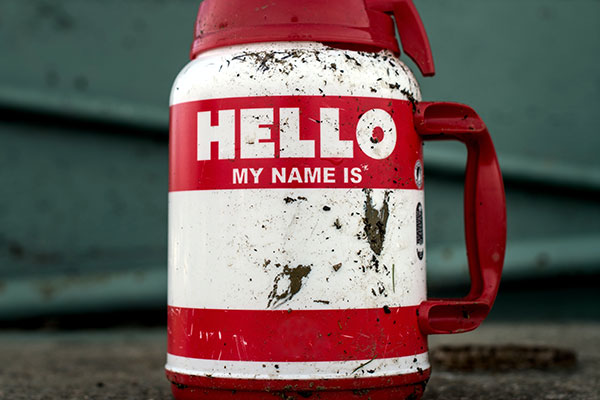Names as sounds and shapes
Reading silently is a curiously auditory experience; we ‘hear’ words in our heads as we ingest them with our eyes. This is why we notice alliteration and rhyme on the page. It is also why we may stumble over a name that seems difficult to pronounce, either because it is from an unfamiliar language, such as Tsetsilya (Russian), or because it is a fantastical name that throws letters together in unconventional ways, such as Grxzlatimn. And it is also why there are plenty of readers out there who can’t quite shake the idea that Hermione is pronounced ‘her-me-own’ rather than ‘her-my-oh-knee’.
As readers we enter a story expecting to meet unfamiliar characters. It is the writer’s job to introduce these characters in a way that allows readers to see their individuality and track their separate trajectories through the narrative. The sound of a name plays an important role in this. If you have a character called Carla and another called Carinne, it may be hard for the reader to remember who is who. Varying the starting letter, the number of syllables and the vowel and consonant sounds makes it easier for readers to differentiate between characters. I see a quite a lot of manuscripts with unnecessary assonance (Jason and Mason) and consonance (Jason and Justin) across names.
It can be helpful to recite a list of your characters aloud and use your ears to flag any potential issues with similarities that may distract or confuse readers. Better still, get someone else to read that list aloud to you and listen to how a reader hears those names. There may be good reasons why you want names to sound similar; that’s fine, as long as this is a conscious choice and you understand the drawbacks.
The sound and shape of a name also has a texture that can enhance characterisation. Think of the difference between short, sharp names such as Victor or Kit, and softer, more relaxed names such as Jeremy or Leilani. How does the sound of your names relate to the characters’ personalities? Nick names are all about sound and shape and can add colour to a character, either shortening or lengthening the name in an informal way. Be careful, however about using too many different names for the one character; this can be confusing to a reader.
Names as signifiers
Of course there’s more to a name than shape and sound. Names are powerful signifiers of identity. Embedded within a name can be indicators of ethnicity, class, social group, era, religion and gender. Think of the difference between Montgomery and Dave, or Alexandra and Candy; Thembani and Juan, or Rosalind and Aiko. Names are chosen by parents, so in deciding the best fit for your character consider their parents’ background and the era. A character called Harmony may be the 70s progeny of hippy parents; Augustine is likely to have Catholic heritage; Marley might grow up in a house filled with Reggae music; and Philomena is from another time.
We make assumptions, sometimes unconscious, about characters based purely on their name. This happened to me when I was reading a manuscript last year. Set in 1950s Australia, the central character was a Jewish teenage girl from an immigrant family whose best friend was Joel, the boy next door. It wasn’t until late in the manuscript that it became clear that Joel wasn’t Jewish, and that I had assumed he was, simply because of the name. I did a quick search on popular boys’ names in 1940s Australia and quite high on the list was Kevin, which seemed like a better fit for that character. Once I had replaced Joel with Kevin in my head, his relationship with the girl next door and his teenage attitudes and behaviours made so much more sense.
I flagged to the writer that she might like to rethink Joel’s name, explaining the erroneous assumption I had made. I didn’t offer any suggestions as I wanted to give her the freedom to find a different name without influencing her. After all, writers have parents’ naming rights over their characters.
Like parents, some writers sometimes get very attached to the names they give their characters, and may not be open to changing them at someone else’s behest. That can be a good thing if you have strong reasons for the names you have chosen. One writer friend pushed back on a suggestion from her editor to change the names of three key characters. She held on to her original vision and her characters’ names ended up being a talking point in reviews of what was to become a bestseller. Perhaps the writer of the book I abandoned also argued the toss with her editor and had good reason to stick with her choices.
On the flip side, sometimes changing a character’s name suddenly opens up a new understanding for the writer of who that character is, which can significantly improve the work. The writer of that 1950s story rang me shortly after receiving my feedback to say that once it was pointed out to her, she totally agreed that Joel wasn’t the right name. She had quickly settled on a new name that fitted much better: Kevin!
